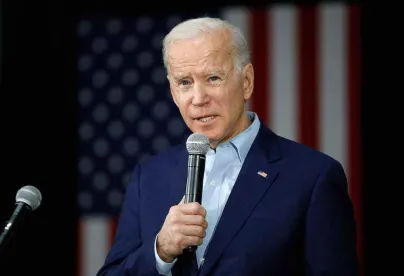Overview
On July 9, 2021, President Biden signed an Executive Order on Promoting Competition in the American Economy (the “Order”), which, among other things, “encourage[s]” the “Chair of the [Federal Trade Commission (the “FTC”)] . . . to consider working with the rest of the Commission to exercise the FTC’s statutory rulemaking authority . . . to curtail the unfair use of non-compete clauses and other clauses or agreements that may unfairly limit worker mobility.” To be clear, the Order does not impact the current state of the law or enforceability of noncompetition agreements in any context, including those between an employer and its employees, partners, or in the context of the sale of a business. Rather, it “encourage[s]” the FTC to “consider” using its authority to “curtail the unfair use of non-compete clauses.” While there was much fanfare that the Order could amount to a ban on noncompetition agreements, the text of the Order and President Biden’s remarks make it clear that is simply not the case.
According to White House Press Secretary Jen Psaki, “roughly half of private sector businesses require at least some employees to enter non-compete agreements, affecting over 30 million people.” Prior to publication of the Order, Ms. Psaki noted that it seeks to address noncompetition agreements that “affec[t] construction workers, hotel workers, many blue-collar jobs, [and] not just high-level executives.” This is consistent with President Biden’s comments upon executing the Order that it is not just highly paid workers or scientists who know an employer’s “secret formula” who are subjected to noncompetition agreements, but rather ordinary, low wage workers, such as those working in the fast-food industry, who should have protection from such agreements.
Next Steps
The Order does not require employers to modify their existing noncompetition agreements. It is simply a direction to the FTC to consider further steps and to engage in rulemaking. While it is impossible to know for certain what that future rulemaking will look like or when it will be implemented, insight and guidance can be drawn from the recent activity at the state and federal level.
State and Federal Activity
President Biden’s Order joins an already crowded field of state regulation in this space. In recent years, many states, including Illinois, Louisiana, Maine, Maryland, Massachusetts, Nevada, New Hampshire, Oregon, Rhode Island, Washington, and Washington D.C. have passed laws restricting the use of noncompetition agreements, typically focusing on low-wage workers, and in some cases focusing on workers in specific industries.
At the federal level, President Biden is not the first to propose addressing the use and application of noncompetition agreements. Notably, President Obama, and some members of Congress, including Senators Todd Young, Tim Kaine, and Kevin Cramer; and Representatives Mike Gallagher, Anna Eshoo, and Peter Meijer, have made efforts to address noncompetition agreements, but those attempts from both branches of government never gained significant traction.
During former President Obama’s administration, the White House called on state policymakers to join in pursuing best-practice policy objectives to reduce the prevalence of noncompetition agreements “that are hurting workers and regional economies,” including:
-
Ban non-compete clauses for certain categories of workers, such as workers under a certain wage threshold; workers in certain occupations that promote public health and safety; workers who are unlikely to possess trade secretes; or those who may suffer undue adverse impacts from non-competes, such as workers laid off or terminated without cause.
-
Improve transparency and fairness of non-compete agreements by, for example, disallowing non-competes unless they are proposed before a job offer or significant promotion has been accepted (because an applicant who has accepted an offer and declined other positions may have less bargaining power); providing consideration over and above continued employment for workers who sign non-compete agreements; or encouraging employers to better inform workers about the law in their state and the existence of non-competes in contracts and how they work.
-
Incentivize employers to write enforceable contracts, and encourage the elimination of unenforceable provisions by, for example, promoting the use of the “red pencil doctrine,” which renders contracts with unenforceable provisions void in their entirety.
In Congress this year, as in years prior, the members of Congress noted above proposed legislation that would curb the use of noncompetition agreements. The current iteration of the Workforce Mobility Act, introduced in both the House and the Senate in February, seeks to broadly ban noncompetition agreements across all occupations and at all income levels – imposing an almost California- or North Dakota-like noncompetition structure on the rest of the country – and provides only very narrow exceptions for (1) the sale of goodwill or ownership interest of a business or (2) partnership dissolution or disassociation. Notably, however, prior iterations of this Act have not gained much traction, and the current version has remained in Committee since February. There is no indication if or when the Act will advance for further consideration beyond the Committee. Indeed, it may be this lack of traction with the proposed, and extremely broad, legislation that caused President Biden to act on his own via Executive Order seeking rulemaking to limit certain aspects of noncompetition agreements.





 />i
/>i
